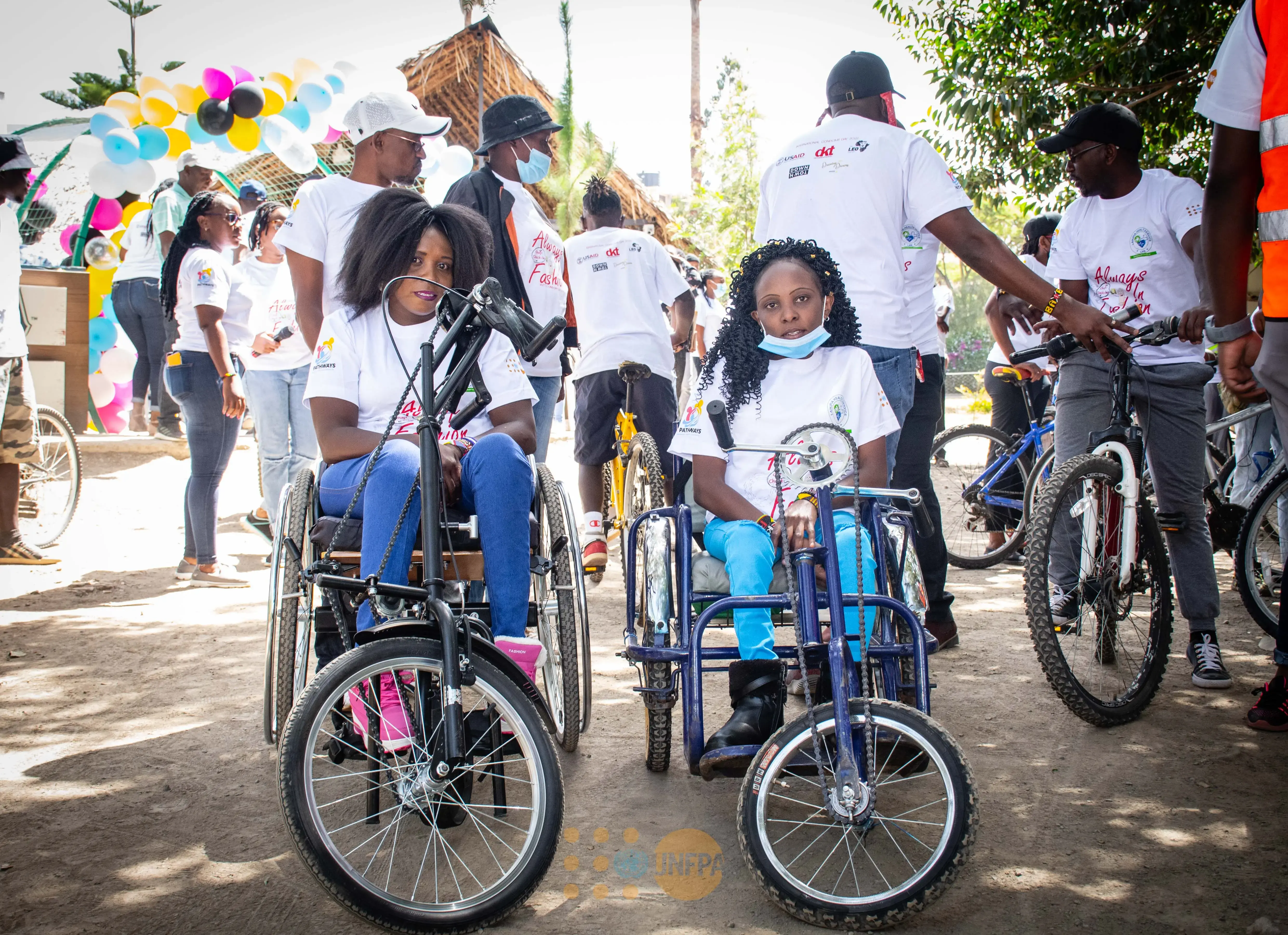Persons with disabilities constitute 2.2% (0.9M) of Kenya’s population, with women making up 57% (523,883), of all persons with disabilities. The common types of disability are mobility (42%), followed by visual (36.4%), cognition (23.2%), hearing (16.7%), self-care (15.3%) and communication (12.1%). More than 80% of persons with disabilities live in rural areas (KPHC report, 2019).
Social and gender norms, misconceptions and negative attitudes around disability are some of the leading causes of marginalization of persons with disabilities. In particular, women and children with disabilities continue to face various challenges in accessing sexual and reproductive health services. Public health facilities lack or have inadequate equipment or amenities adapted for persons with disabilities such as access ramps, examination couches, and delivery beds, as well as insufficient assistive devices and technology. Sexual and reproductive health information is often not readily available in accessible formats, and persons with disabilities still struggle to access basic information online or via local apps as most digital platforms are not developed with their needs in mind.
Focusing on the rights of persons with disabilities supports the achievement of the Sustainable Development Goals, especially the principle of “leaving no one behind” (LNOB) and “reaching the furthest behind.” The ICPD Programme of Action has called on states to address the sexual and reproductive health needs of persons with disabilities, and it demanded the elimination of discrimination that undermines the reproductive rights of persons with disabilities. In order to accelerate progress on the agenda of the ICPD Programme of Action, it is important to effectively and systematically include persons with disabilities, especially women and young persons with disabilities in development, humanitarian, sustaining peace and peacebuilding settings.
UNFPA is working to promote meaningful, transformative and sustainable inclusion of persons with disabilities across all its programmes and operations. The UNFPA Disability Inclusion Strategy puts persons with disabilities at the very centre of everything UNFPA does to ensure sexual and reproductive health and rights for all.
UNFPA's approach in Kenya
Policy and advocacy
UNFPA works with government institutions to strengthen the policy environment and dialogue for disability inclusion. UNFPA has supported the development of Kenya country commitments at the Global Disability Summit II, and the development of the Status Report on Disability Inclusion in Kenya, 2021.
UNFPA also advocates for and supports the collection, analysis and utilization of timely, reliable and comprehensive data that is disaggregated by disability, gender and age as a prerequisite for policy and programme designs that respond to the needs and aspirations of persons with disabilities.
Capacity Building
For UNFPA, collaborating with persons with disabilities has created opportunities in making our initiatives fit for purpose. UNFPA facilitates capacity-building initiatives aimed at strengthening the capacity of persons with disabilities and their representative organizations, to build effective programmes that are more responsive to the needs of persons with disabilities, including ensuring accessibility of sexual and reproductive health services and information.
UNFPA has facilitated the development of training tools on sexual and reproductive health and rights and disability, as well as the training of healthcare workers, teachers, and caregivers to address the quality of care for women and girls with disabilities.
By leveraging technology, UNFPA works with partners to increase access to sexual and reproductive health and rights information and referral services via USSD and toll-free call lines. UNFPA also supports the development of inclusive learning materials such as handbooks for youth with intellectual disabilities that contain information presented in simple, visual, and easily understood formats.
Humanitarian Assistance
In emergency settings, persons with disabilities often suffer disproportionately, as the situation can often be compounded by issues such as neglect, abuse and a difficult physical environment. UNFPA emergency preparedness and response plans take into consideration and plan explicitly for the sexual and reproductive health and protection needs of women and girls with disabilities. This includes the provision of dignity kits with essential hygiene supplies as well as mental health and psychosocial support for individuals and their families.



